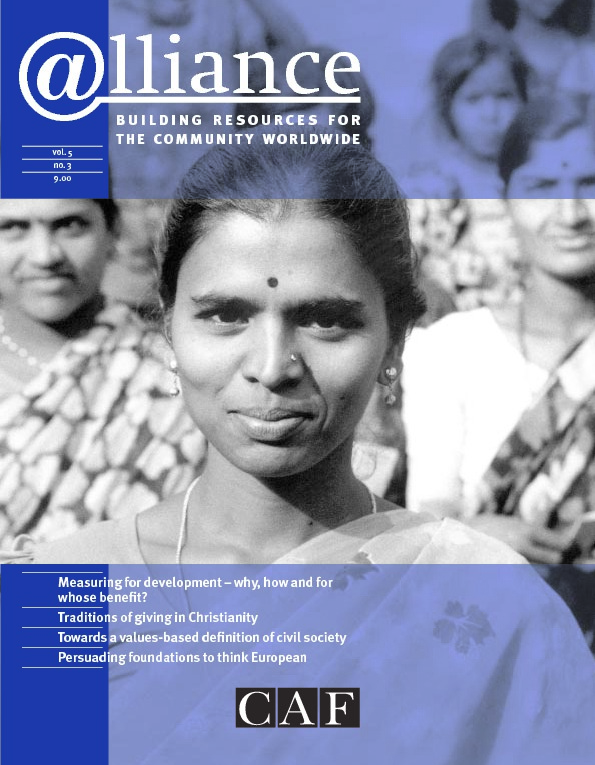Profits for Nonprofits is one of a four-book series designed to further practical thinking on nonprofit self-financing. Taken together, they are intended to provide practitioners and donors with the tools to determine how self-financing strategies can be used effectively and responsibly. They are born of a research programme based in Central Europe, where the shifting nature of funding is threatening the financial sustainability of parts of the non-profit sector. Initial findings from this programme were presented at the CIVICUS Assembly in Budapest in 1998.
This book draws upon 20 case studies and offers lessons from these experiences. The authors unashamedly believe that if NGOs are to develop and sustain not only themselves but also their work, they require not only additional sources of financing but also additional types, which go beyond traditional project grants and donations. Additionality is key. They do not advocate replacing philanthropic financing. However, in the case of ArtForum in Slovakia, they do recognise a situation where a profitable business has superseded a failed non-profit turned business. Cautionary tales also exist and the lessons of dashing unprepared into this arena are there to be learned.
The authors recognize that sustainability is not merely a question of identifying sufficient financial resources. If all NGOs were rich, the problem would not have been solved. Drawing upon the work of Paula Antezana at the Arias Foundation, they offer a list of a dozen factors which contribute to sustainability, of which sufficient financial resources is but one.
Although the case studies are focused entirely on Central Europe, the book should be essential reading for donors and practitioners alike throughout the world. It would be interesting to see NESsT’s work extended to a market such as the UK where there are not only positive examples such as the Inner City Trust in Derry, which has used property investment to build its asset base, but also examples of swapping grant dependency for contract dependency with no improvement in the non-profit’s sustainability.
None the less, the book does illustrate that self-financing ideas can be developed to give non-profits greater independence in their financial strategies. All in all, a highly readable contribution to the expanding debate about a non-profit capital market.
Malcolm Hayday is Director of Community Finance at CAF. He can be contacted by email at mhayday@caf.charitynet.org
Profits for Nonprofits: An assessment of the challenges in NGO self-financing
Lee Davis and Nicole Etchart
NESsT $30
To order, contact NESsT.
Email nesst@igc,apc.org
Website http://www.nesst.org






Comments (0)